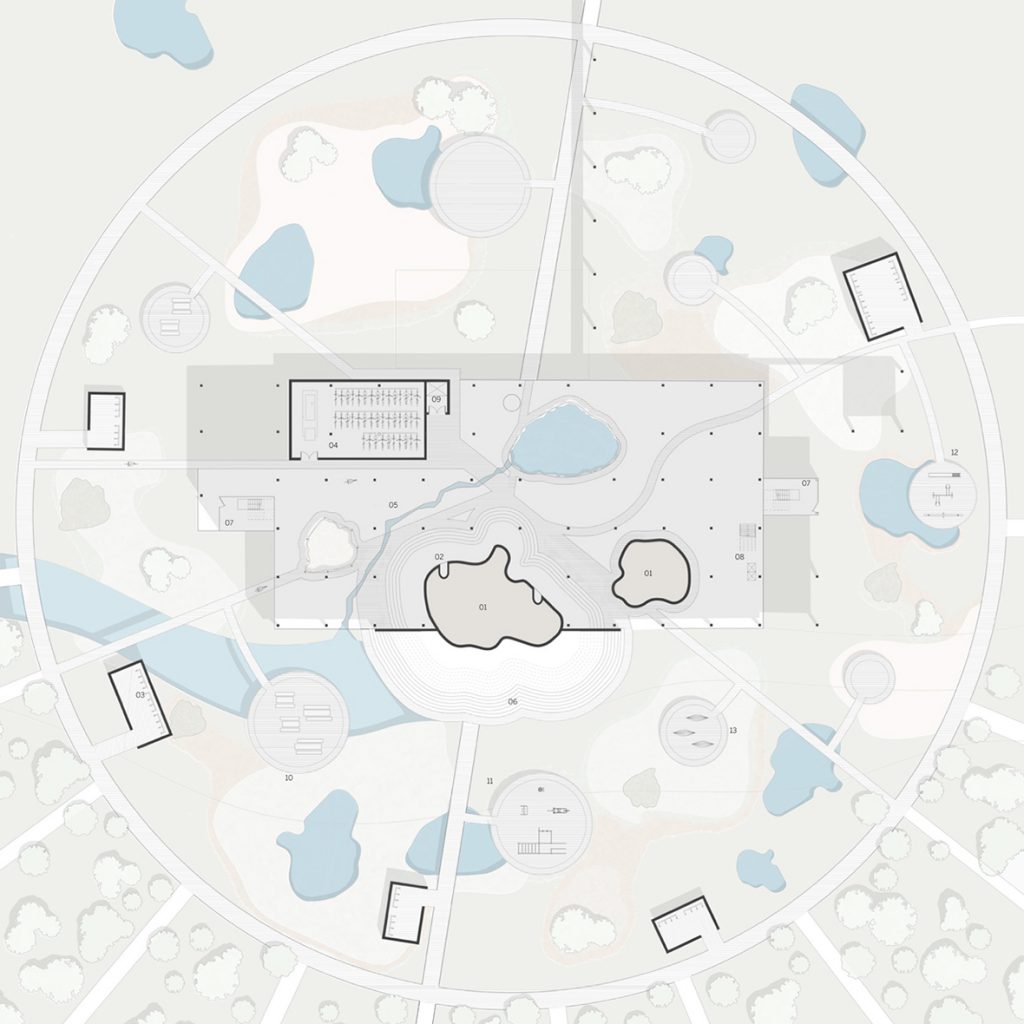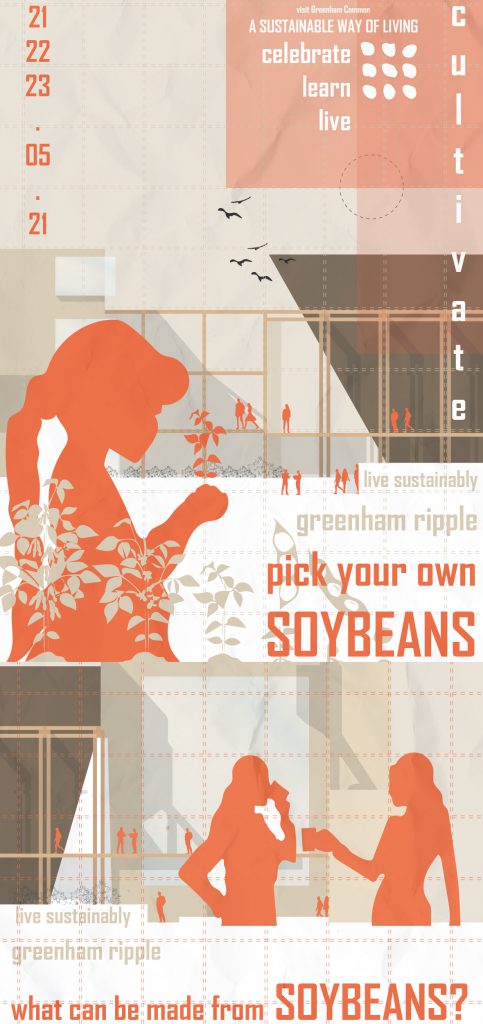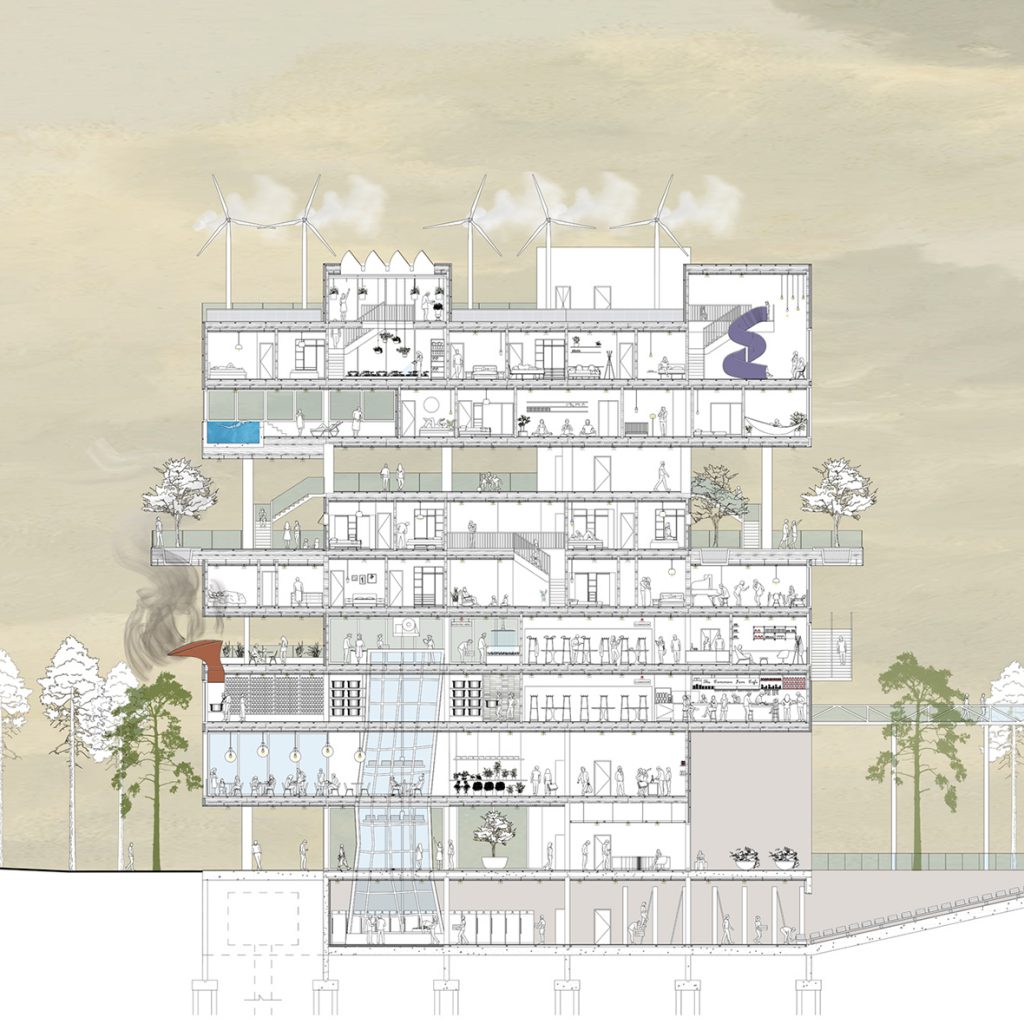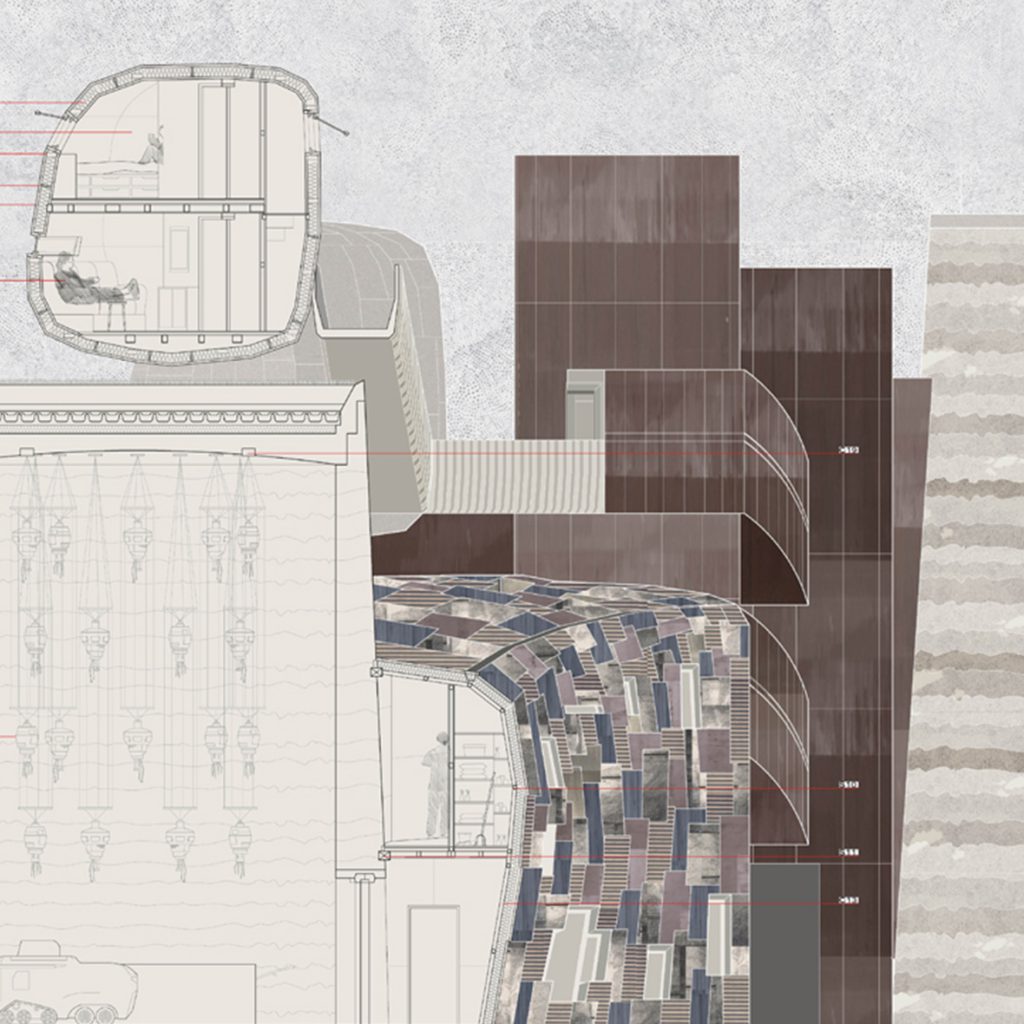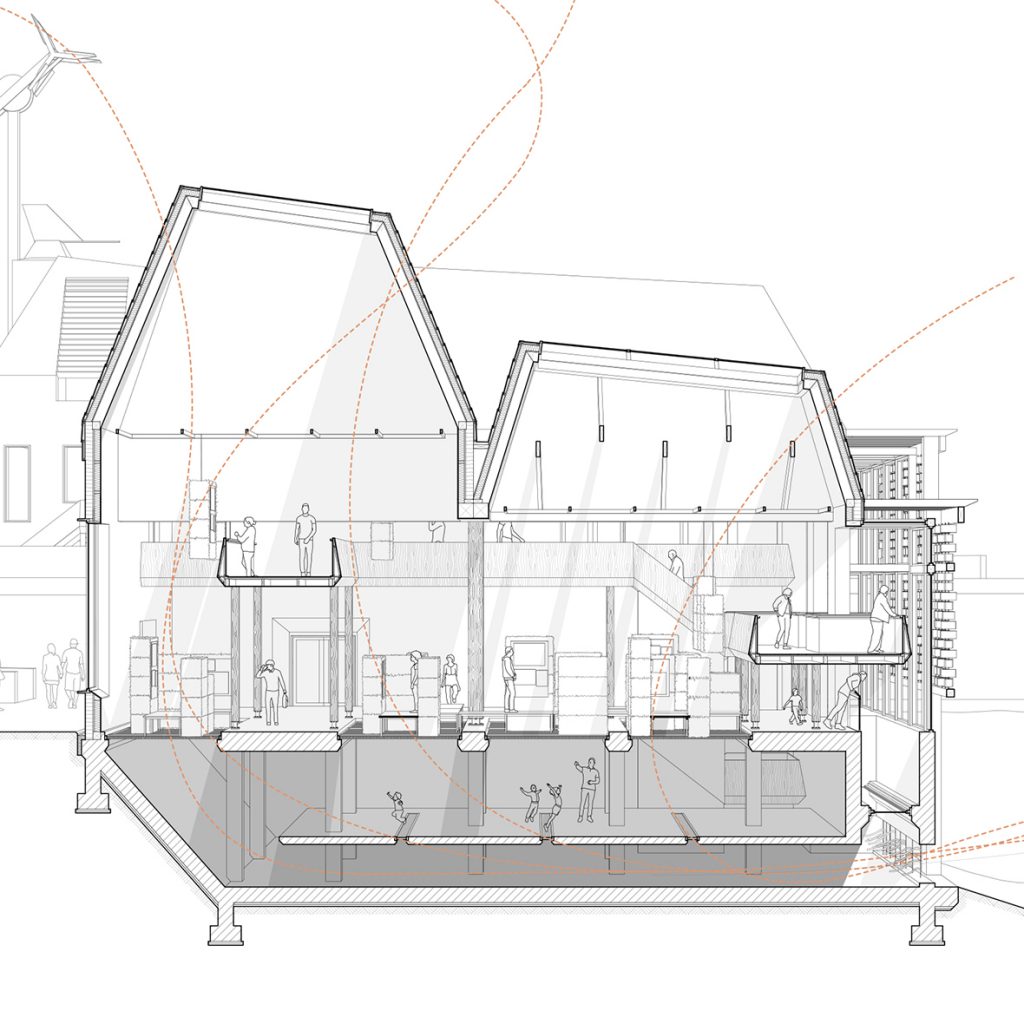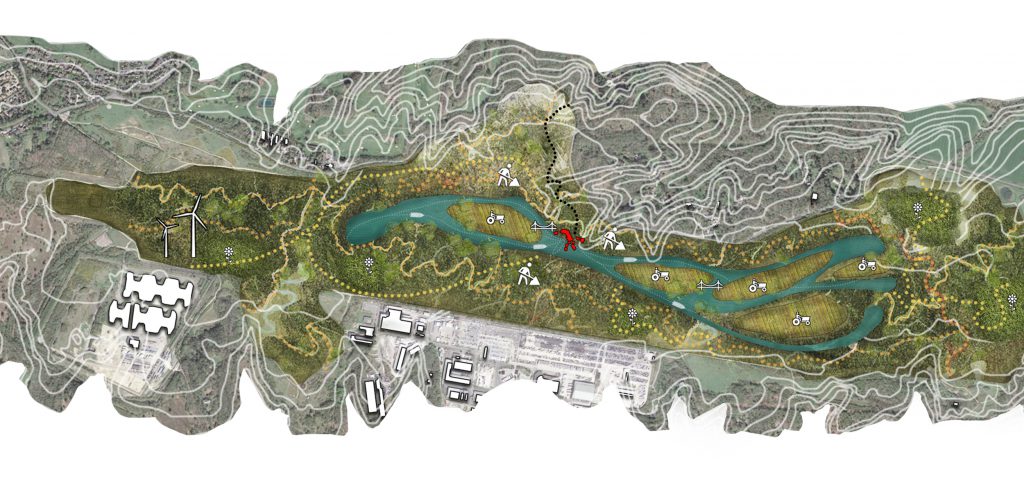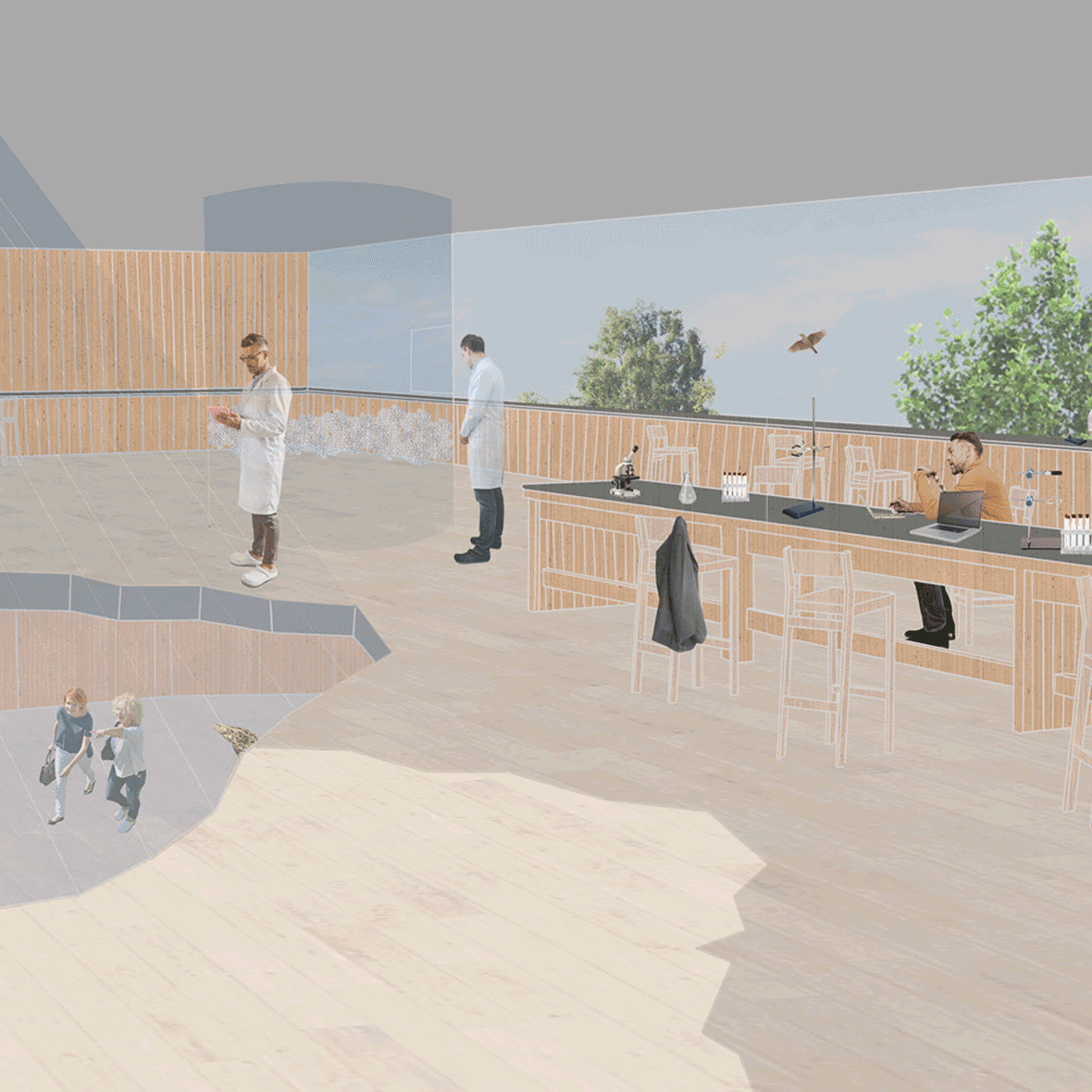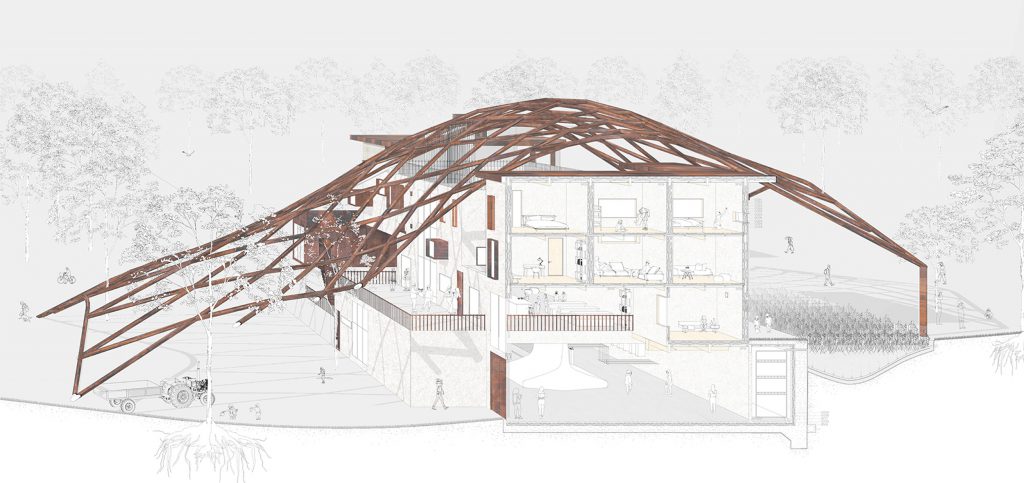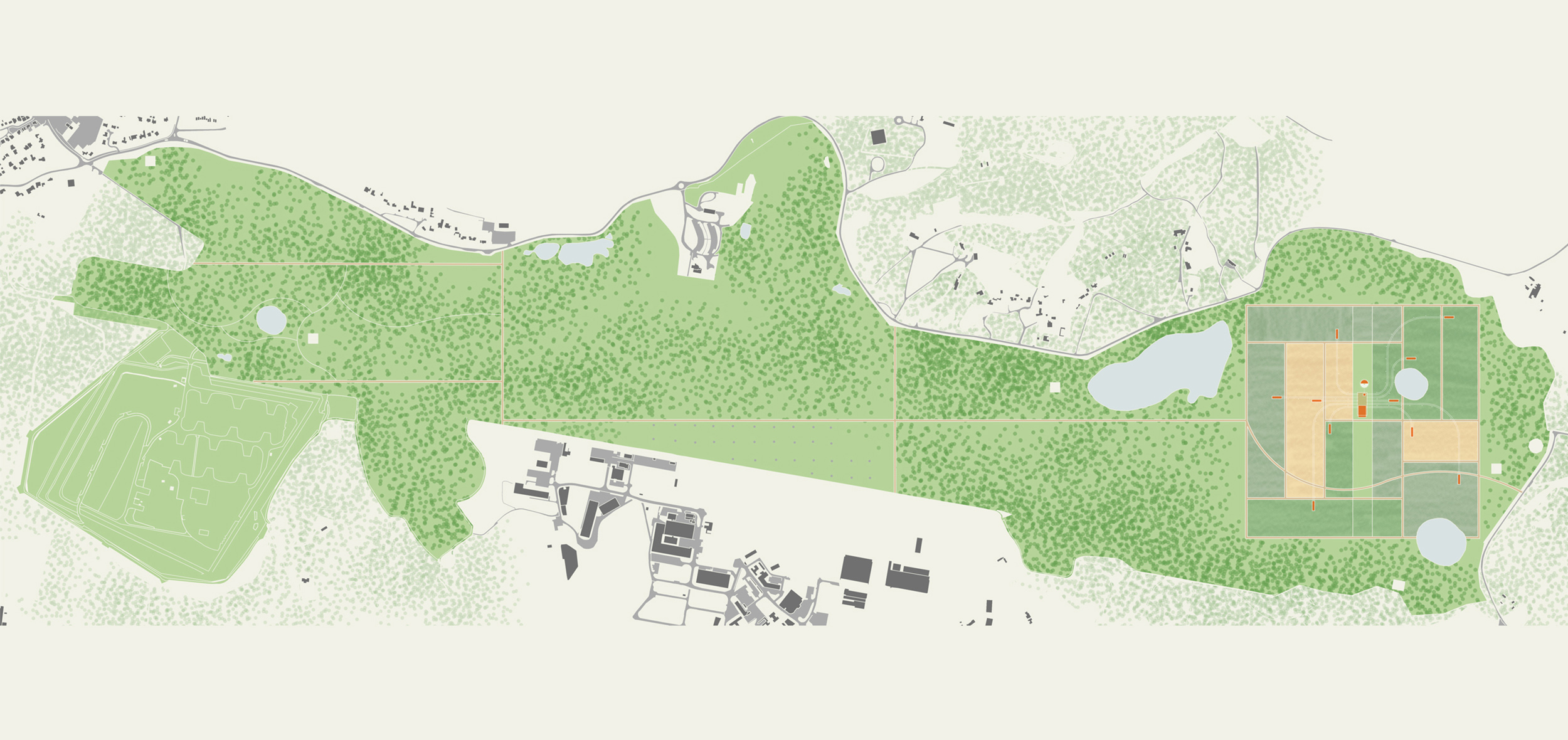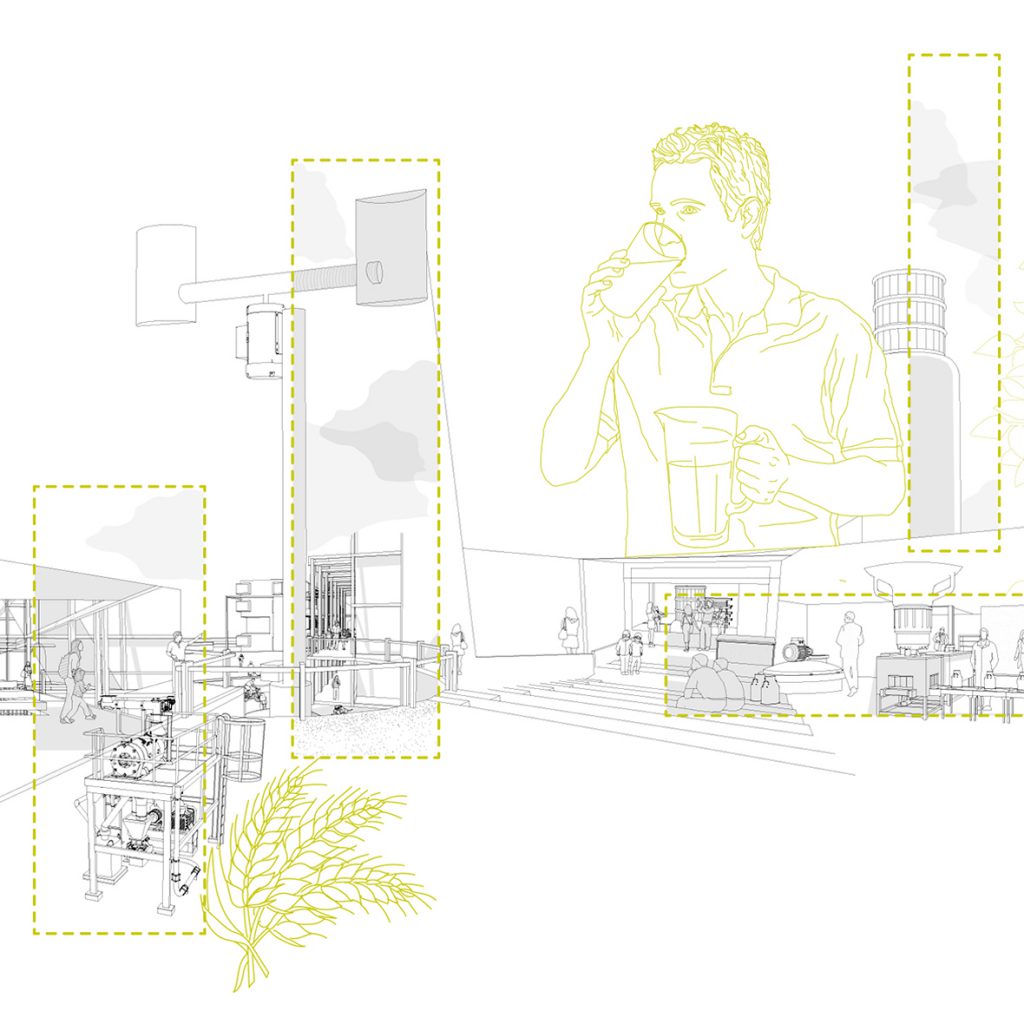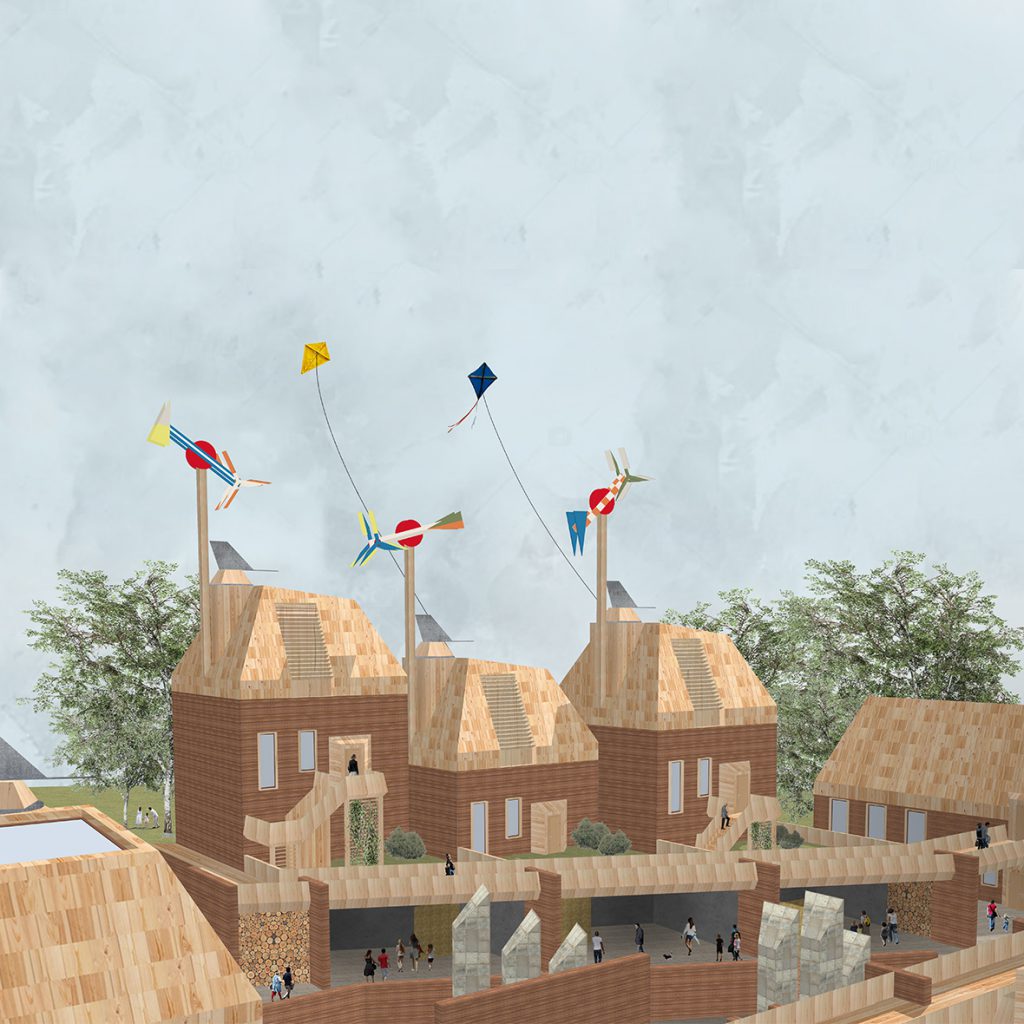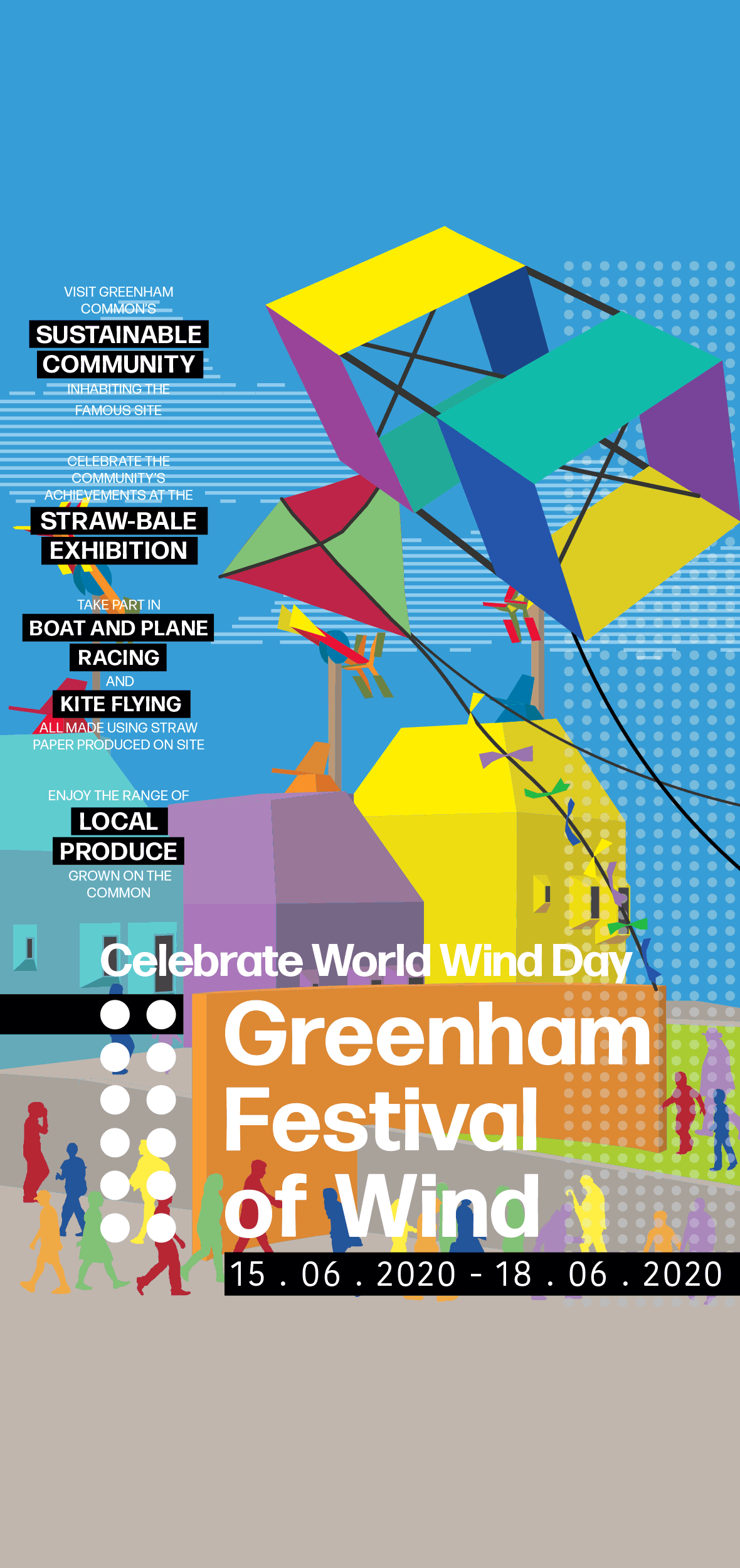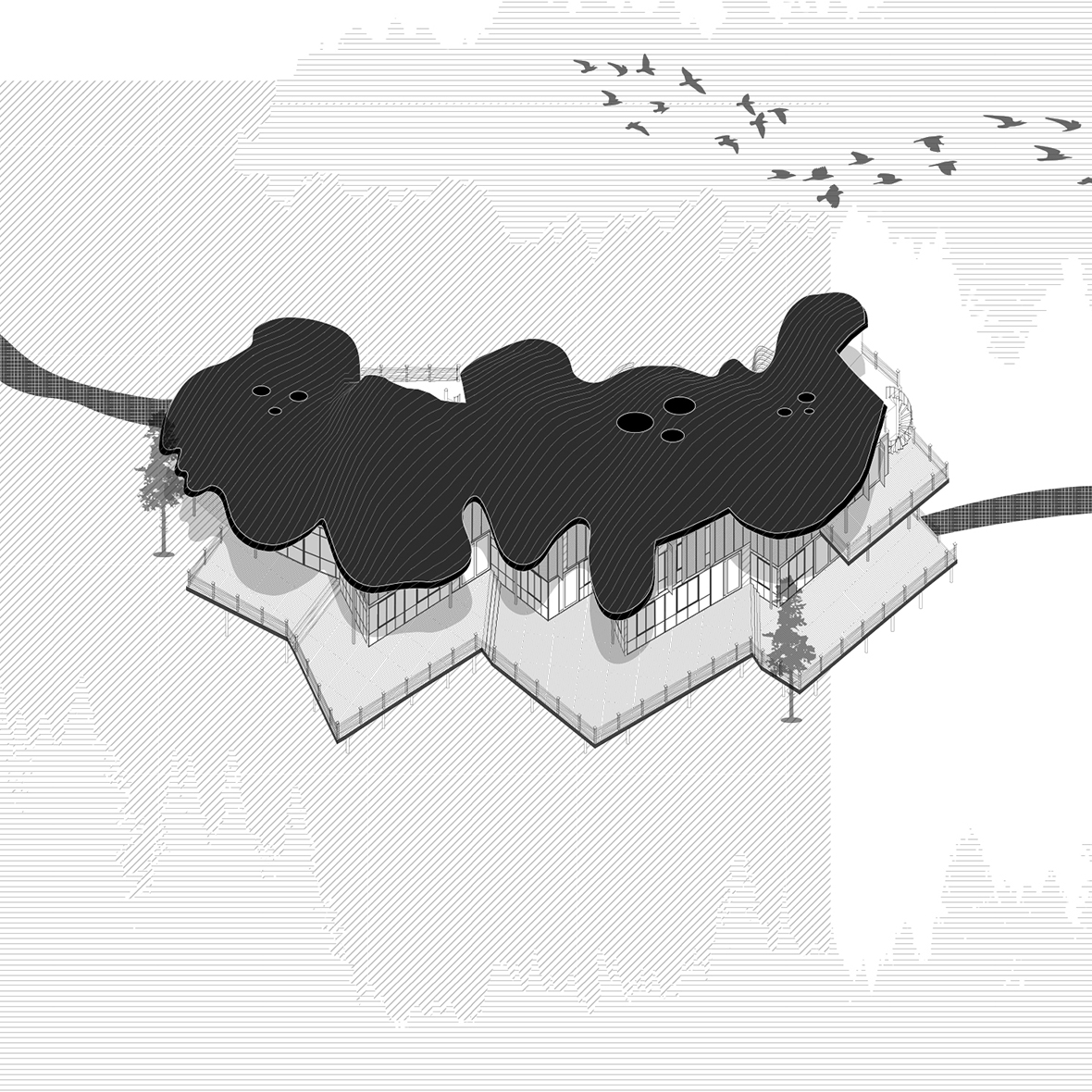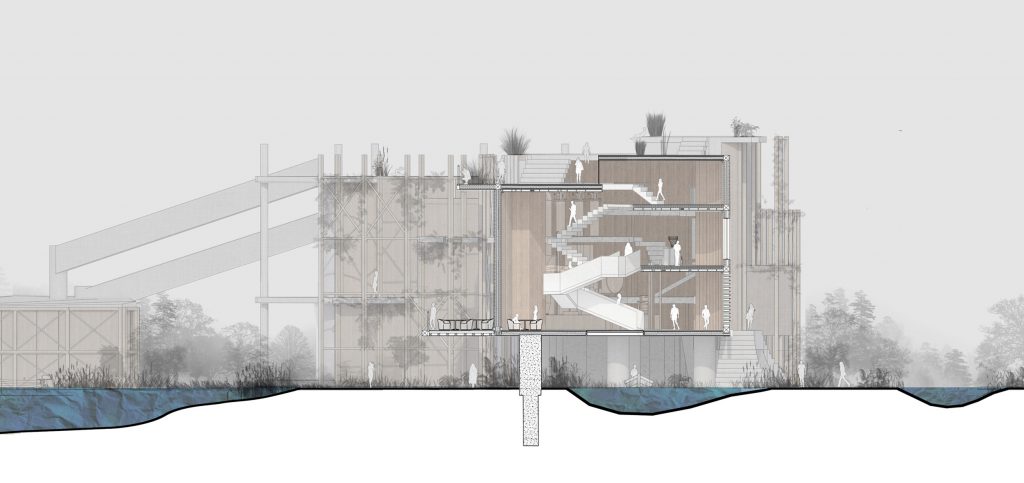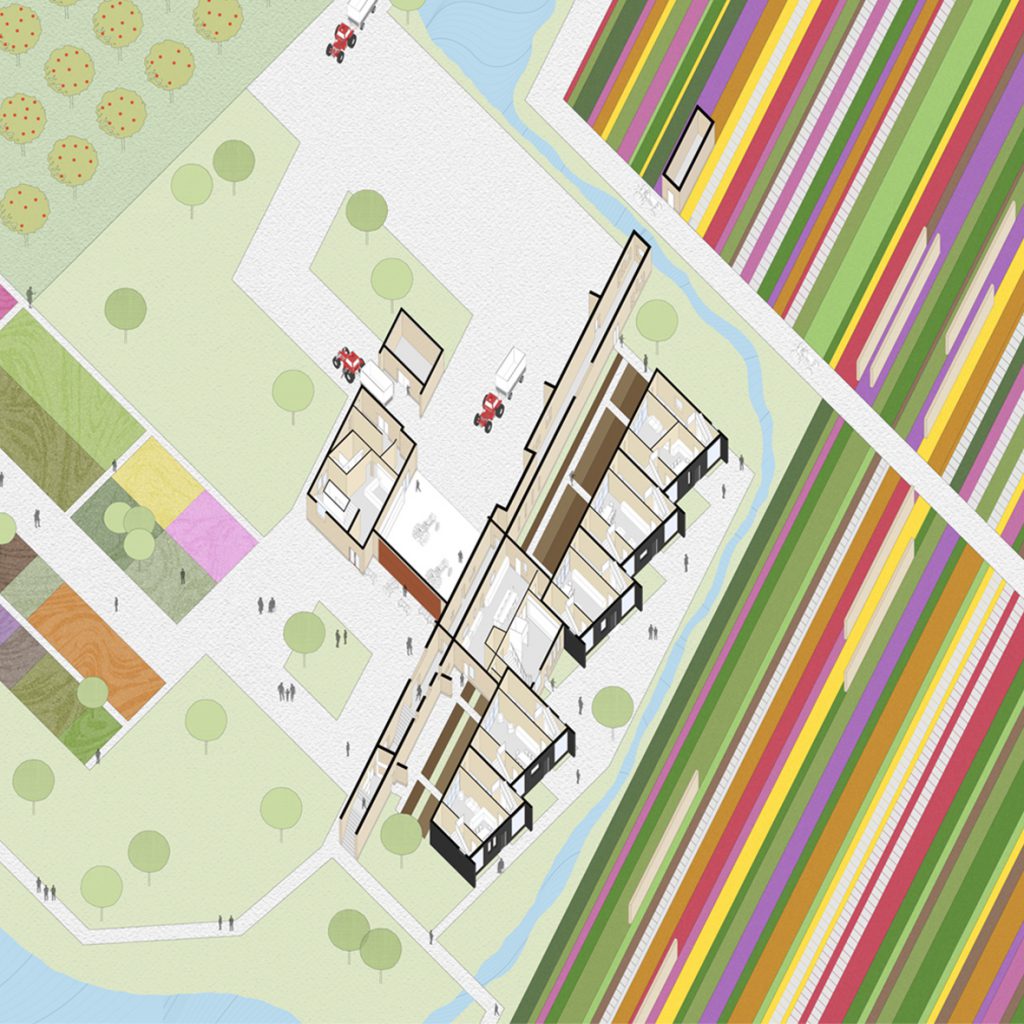SPRING-SUMMER STUDIO
Greenham Wildcraft
AA3DS6 - Integration
The Spring project, Greenham Wildcraft, addressed the necessity for changes in environmental strategy. Amelia Stein identifies the phenomenal success of the YouTube channel ‘Primitive Technology’. A shirtless, barefoot man, wearing cargo shorts, has attracted over three million subscribers. The channel demonstrates the possibility of ‘sustain[ing] oneself in a modern way through archaic means’. To what extent has the 70s version of ‘living sustainably’ linked, as it was, to ‘opting out’ or ‘alternative’ modes, affected the way that the climate crisis is being addressed today? How is the ‘scientific’ voice received in comparison to the ‘radical’ voice?
To what extent is the ‘opting out’ model applicable to the wider population? What would happen if everybody headed to the countryside, built themselves a hut, dug a fire-pit, gathered firewood? Would they leave their Playstations and microwaves plugged in at home and pop back when they realised the forest was full of mosquitos and that people ‘borrowed’ their laboriously collected wood pile in the night? What would happen when the dry-cleaning ran out? Would the supermarket still be open late?
The project included the design of a model community for Greenham that would demonstrate students’ approach to the complex relationships between ecology, living, consumption and production.
Module Convenor: Oliver Froome-Lewis
Design Studio Team: Oliver Froome-Lewis, Negin Ghorbhani, Mike Kane, Sayan Skandarajah, Michelle Tomlinson
The Spring project, Greenham Wildcraft, addressed the necessity for changes in environmental strategy. Amelia Stein identifies the phenomenal success of the YouTube channel ‘Primitive Technology’. A shirtless, barefoot man, wearing cargo shorts, has attracted over three million subscribers. The channel demonstrates the possibility of ‘sustain[ing] oneself in a modern way through archaic means’. To what extent has the 70s version of ‘living sustainably’ linked, as it was, to ‘opting out’ or ‘alternative’ modes, affected the way that the climate crisis is being addressed today? How is the ‘scientific’ voice received in comparison to the ‘radical’ voice?
To what extent is the ‘opting out’ model applicable to the wider population? What would happen if everybody headed to the countryside, built themselves a hut, dug a fire-pit, gathered firewood? Would they leave their Playstations and microwaves plugged in at home and pop back when they realised the forest was full of mosquitos and that people ‘borrowed’ their laboriously collected wood pile in the night? What would happen when the dry-cleaning ran out? Would the supermarket still be open late?
The project included the design of a model community for Greenham that would demonstrate students’ approach to the complex relationships between ecology, living, consumption and production.
Module Convenor: Oliver Froome-Lewis
Design Studio Team: Oliver Froome-Lewis, Negin Ghorbani, Mike Kane, Sayan Skandarajah, Michelle Tomlinson

